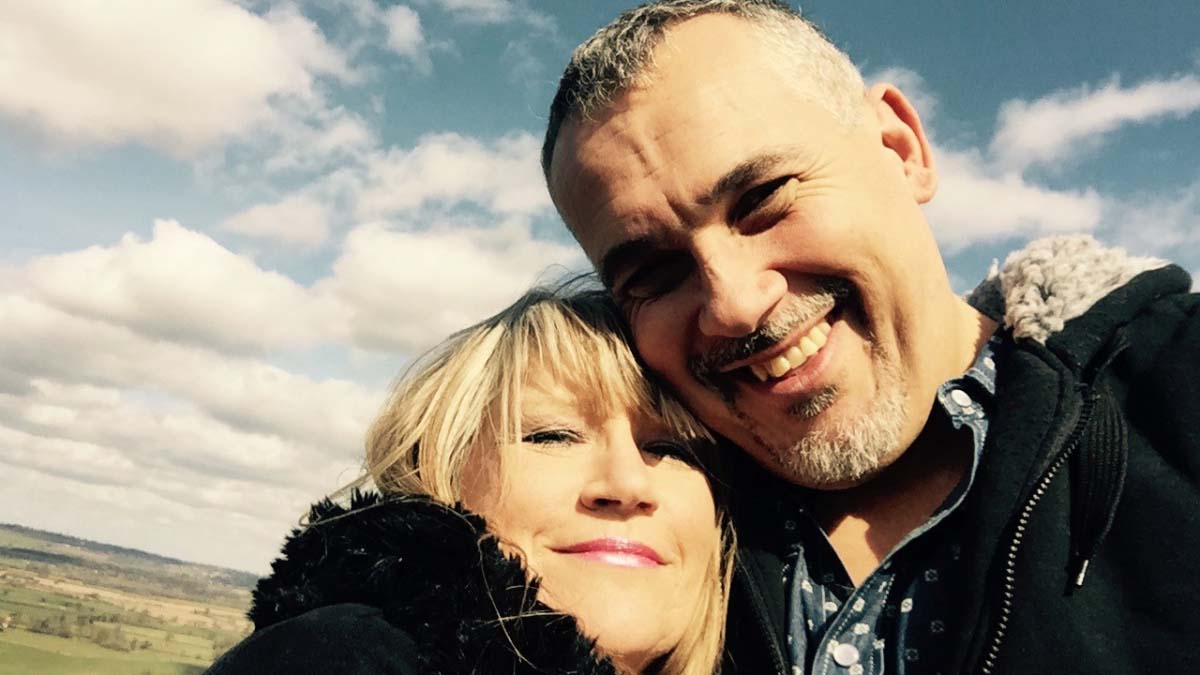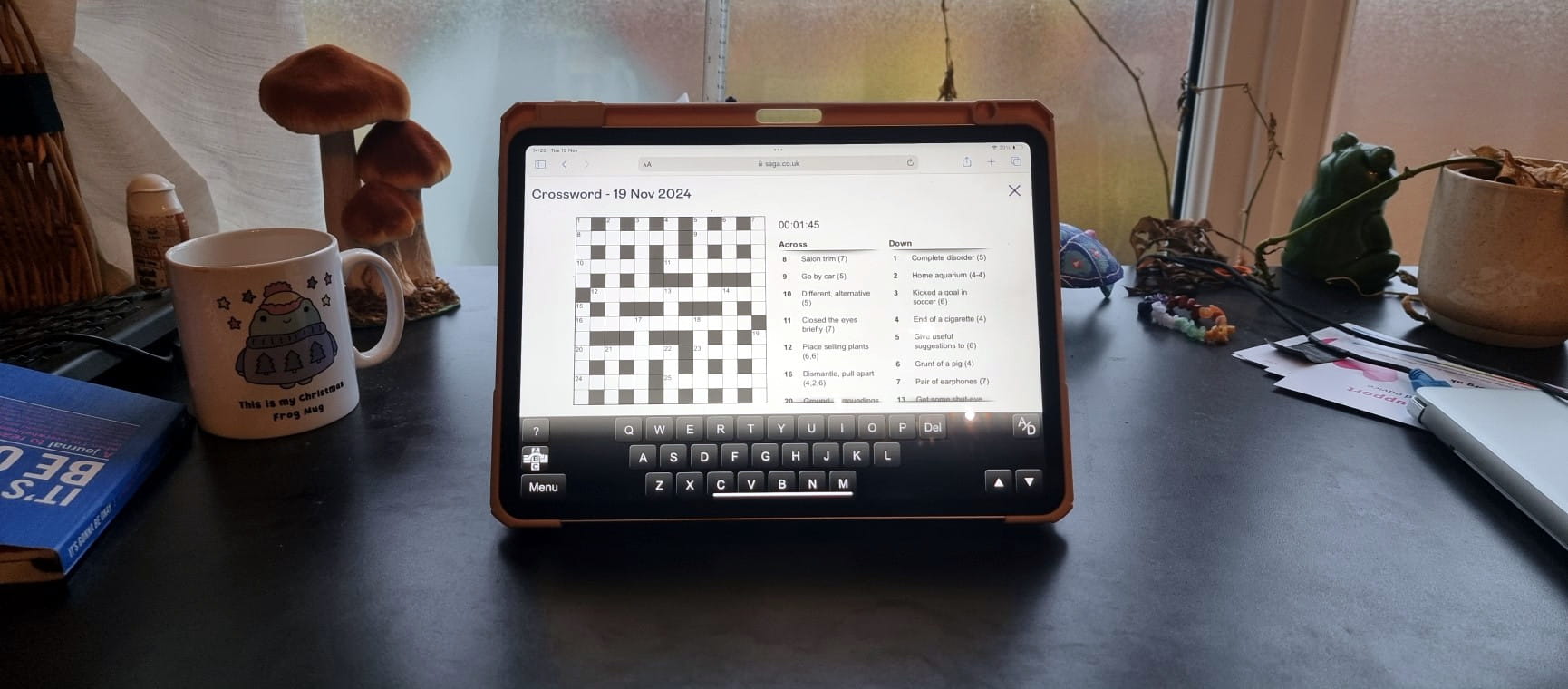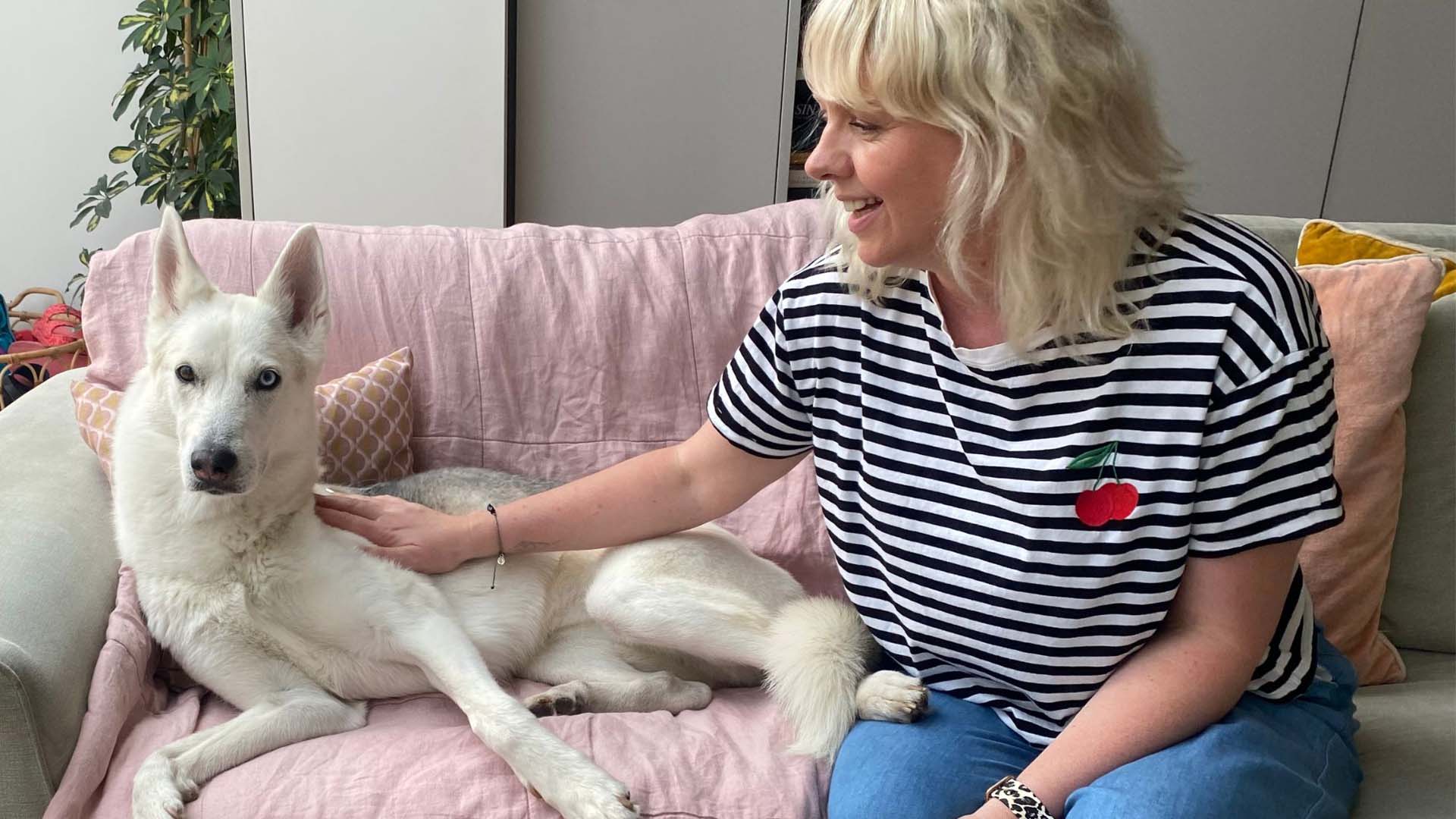

How one couple have navigated the changes in their relationship that memory loss due to dementia has brought.
When Paul and Lisa Simpson said “I do” on their wedding day in August 2019, they made the ultimate vow to stand by each other in sickness and in health.
But just two years later, their vow was brought to bear when Paul was diagnosed with Korsakoff’s syndrome, a rare form of dementia, at the age of 55.
As the couple gradually got to grips with the changes in Paul’s personality and behaviour, they’ve also had to navigate their way through their relationship evolving. One thing that hasn’t changed, however, is their love for each other.

When chatting with Paul and Lisa, you wouldn’t immediately pick up on Paul’s condition, as they couple happily natter away, sharing stories and anecdotes about their relationship.
What is telling is when Lisa explains that just a couple of hours afterwards, Paul will not remember that we have chatted at all.
This is a common symptom of Korsakoff’s syndrome, because while a person’s memory can be severely affected, thinking and social skills can be relatively unchanged.
Lisa had always thought Paul’s symptoms started suddenly, when he was admitted to hospital due to having a bleed in his stomach. When he was discharged, he was confused about where they lived.
Yet on reflection, she realised there were signs before then.
“He would get agitated quite quickly, but I’d put this down to his back injury as he had a slipped disc,” she explains. “He had also become more argumentative, and he’d been forgetting stuff, though not to the point where it was instantly noticeable.
One of the issues Paul and Lisa have had to navigate is learning how to cope with the memory changes Paul is experiencing.
With Korsakoff’s syndrome, people can make up things to fill in memories or information they can’t remember.
This is known as confabulation; it isn’t lying as such, because people genuinely believe what they have told themselves.
For the couple, this can mean disagreements occur that haven’t actually taken place, and Paul can think he has carried out tasks and can therefore relax, when he hasn’t actually done what was asked of him.
“He thinks he’s done things when he hasn’t, but his mind has convinced him otherwise,” Lisa explains. “He’ll tell me he has been for a walk into the village when I know he hasn’t left the house, or he’ll says he’s done some gardening when it’s clear he hasn’t.
“He can also imagine that we’ve had conversations or disagreements that didn’t happen, and that can be tough as we both end up getting upset.”

The couple cannot thank the Alzheimer’s Society and their dementia adviser, Eula, enough for all the advice and support they’ve received. This has included everything from simplifying what’s in the kitchen so Paul can find things a little easier, to helping Lisa through the power of attorney process.
The couple have also learnt through trial and error that the start of sentences and what’s written on Post-it notes has to be detailed to help Paul.
They share a recent situation when he had offered to give Lisa a massage after her bath. They agreed he would come into the bedroom in ten minutes, and to help with this, Paul wrote “Ten minutes” on a Post-it note to remind himself. But the note had no other information, so he didn’t know what he was meant to be doing and the massage didn’t happen.
“Notes need to be very specific,” Paul emphasizes, “and the front end of a sentence really matters.”
“I sometimes forget that Paul has dementia,” Lisa says. “Because to me, he’s still my Paul. I’ve got to always try and remember now to do full sentences.”
Paul’s favourite saying is “one job at a time”, and he explains this mantra helps to take the pressure off.
“We have to simplify everything,” he says. “When I know what I’m doing and what time I’m doing it, this helps me to relax. I can forget important things, including whether or not we’ve argued the night before. I have to check with Lisa whether I’m in trouble sometimes!”
Previously, when Paul and Lisa had an argument or falling out, they wouldn’t speak to one another for several days – but that’s no longer practical. Instead, Lisa has been advised by Eula to do something very different instead.
“She recommended, if we have a row, I should just park it and put it to one side,” she says.
“When Eula gave me this advice, she knew it would be hard for me and at times, it is. Sometimes, I just want to say something back. But I know if I do start arguing with Paul, he’d start crying and that’s not fair on him.
“He often can’t remember when we’ve had an argument so it’s almost as though nothing has happened and I’m just being horrible. Sometimes I do tell him he wasn’t very nice, but I also let him know it’s okay. I’ve learnt to walk away from it, and that’s better for our relationship.”
Paul adds that he finds it much easier to say sorry now and feels they’ve become more mature about arguments.
Eula also provided great advice to help Lisa handle moments when Paul becomes agitated as part of his condition. She now walks away and stays in another room for a couple of minutes to allow him to calm down before she returns.
“This works 99.9% of the time,” she says. “Simple changes like this have helped us so much.”

Paul is a former nuclear engineer who previously raced cars as a hobby. He was always very active, and Lisa proudly explains that he has won lots of medals and trophies as a result of his racing. He also used to be a big fan of motorsport and Formula 1 (F1) racing.
“He’d be up and about early to go on walks and he was such an active, positive person, but now, he’s quite depressed a lot of the time,” she says.
Trying to think of ways to get Paul to go outdoors each day can be tiring, she adds, even though going for a walk together or popping out for coffee and getting some fresh air is good for both of them.
“Paul has also lost passion in his life,” she adds. “I try to encourage him to watch F1 with me, but he’s not interested. His passions now are me and our beautiful dog, Bella. He’s also lost interest in food as he can no longer smell or taste (this is something that can sometimes develop as a result of the condition).”
Paul says he no longer has the same motivation to do things he previously enjoyed.
“I just tend to sit inside with Bella and my computer. Dementia has changed my whole life and I’m a different person now. I’m a new person. The positives (such as spending more time with Lisa and their dog, Bella) are one-tenth of the negatives.”
Lisa likes to be with Paul as much as possible and has given up her job as a finance manager so they can spend more time together. She doesn’t like to leave her husband alone for even a short period, but if it’s a necessity, she takes steps to help him remember where she is by leaving Post-it notes around the house.
Paul attends a weekly evening support group and says he’s pleased this gives Lisa some time to herself when she doesn’t need to worry about him.
The changes to Paul’s personality and behaviour have impacted on the couple’s intimate relationship, too. But though the sexual side of their relationship is no longer there, the love and closeness between them is still strong.
"He’s very affectionate and he still compliments me every day,” Lisa says. “He’s done that since the first day I met him. We still hold hands, and we cuddle in public too.
"When I get upset and sad, he sometimes senses when I’m getting emotional, and he’ll come over and give me a big hug and tell me he loves me.”
At times, the reality of Paul’s condition will suddenly hit Lisa, such as when they’re watching TV together. “Sometimes I’ll look over at him and he’ll have a lost expression on his face, and I can’t help thinking, ‘Why did this disease get you?’
"
It’s frustrating as we don’t know what Paul’s future is going to look like – but we’re strong enough as a couple to get through it.”
For more advice and information on dementia, visit Alzheimer’s Society.

The ultimate guide to Saga Puzzles, full of technical tips, tricks and hints.




Anne Robinson on what to say when you read a friend's book and it's terrible.

Whether you have the same first word or change it up daily, your puzzle-solving technique is a ‘personality test in disguise’.


